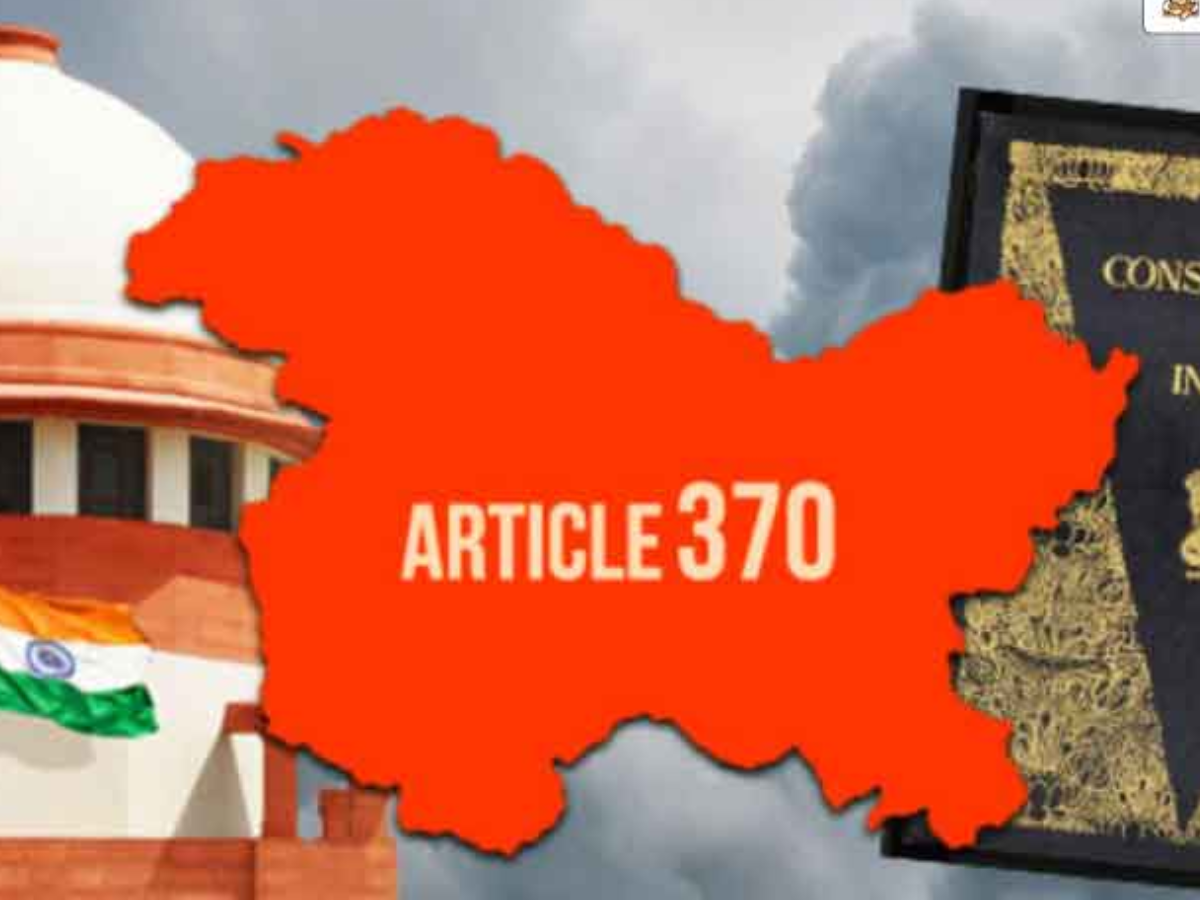Article 370, which privileged Jammu and Kashmir, has partially been abrogated after the Central Government moved a resolution in the Parliament on August 5, 2019, to end the special treatment given to Jammu and Kashmir. The motion was passed, with a separate act bifurcating the state into two different Union Territories – Jammu and Kashmir and Ladakh.
The abrogation was challenged before the Supreme Court. On December 11, 2023, however the apex court upheld its validity, repealing the special status of Jammu and Kashmir (J&K) under Article 370 of the Constitution. The Court held that the State of J&K had no internal sovereignty, and the concurrence of the State Government was not required to apply the Indian Constitution to the State of J&K.
What Was Article 370?
Article 370 was placed under Part XXI of the Constitution -‘Temporary, Transitional and Special Provisions’ — which permitted Jammu and Kashmir to draft its own Constitution. It restricted Parliament’s legislative powers for extending a central law on subjects included in the Instrument of Accession (IoA) over Jammu and Kashmir.
The Instrument of Accession was signed by Raja Hari Singh, Hindu King of the then princely state of J&K, and Governor General Lord Mountbatten in 1947, which gave Parliament the power to legislate only on Defence, External Affairs and Communications.
Why Was J&K Given Special Status?
Due to the situation brewing during the period of its accession to India, Jammu and Kashmir was granted special status after Independence. The last Hindu King Maharaja Hari Singh, who was ruling over a Muslim-majority state, sought India’s help to resist military attacks from Pakistan in 1947. India agreed to help, but he, in return, had signed the Instrument of Accession, which allowed Jammu and Kashmir to become a part of India under special conditions.
Why Was Special Status Removed?
As August 5 marks the sixth anniversary of the abrogation of Article 370, you must know why the special status was removed.
The obvious answer comes from the statements by Union Home Minister Amit Shah, who told the Parliament that after the revocation of Article 370, all provisions of the Indian Constitution would apply to Jammu and Kashmir.
The Bharatiya Janata Party has always been pushing demands in its election manifesto that include the abrogation of Article 370, the construction of Ram Mandir in Ayodhya and the implementation of the Uniform Civil Code. The BJP has already completed two of its over-emphasised demands – the revocation of Article 370 was the first one.
The Process Followed To Revoke Article 370
The revocation of Article 370 was done on August 5, 2019. Article 370 allows its abrogation when the president passes an order to that effect with the concurrence of the Constituent Assembly.
The Central Government argued that since the Constituent Assembly was dissolved in 1957 in the state, the President interpreted the Constituent Assembly to mean the legislative assembly, which meant Parliament, as the state was under President’s Rule at that time.
What Changes Were Made After The Abrogation
The revocation of Article 370 came with several changes for Jammu and Kashmir. It abolished the autonomy of J&K, removing special privileges.
The abrogation also bifurcated the state into two Union Territories – Jammu and Kashmir with a Legislative Assembly, and Ladakh without one. Due to which, J&K has lost its statehood.
Demands For Statehood To Jammu And Kashmir
Nowadays, on every anniversary of the abrogation of Article 370, opposition parties have been demanding statehood for Jammu and Kashmir. Former Jammu and Kashmir chief minister Farooq Abdullah reminded the Bharatiya Janata Party Government in the Centre to fulfil its promise and urged it to hold elections to Rajya Sabha seats and not deny people the right to speak about their problems.
On 13 January 2024, referring to J&K Chief Minister Omar Abdullah’s wish to make good his promise to restore statehood to the union territory, Prime Minister Narendra Modi also said, “The right things are going to happen at the right time.”
ALSO READ: Separate Meetings Of PM Modi And HM Shah With Prez Murmu Spark Buzz Of Restoration Of J&K Statehood






